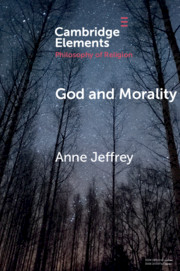Element contents
God and Morality
Published online by Cambridge University Press: 25 April 2019
Summary
- Type
- Element
- Information
- Online ISBN: 9781108567701Publisher: Cambridge University PressPrint publication: 09 May 2019
References
- 17
- Cited by

